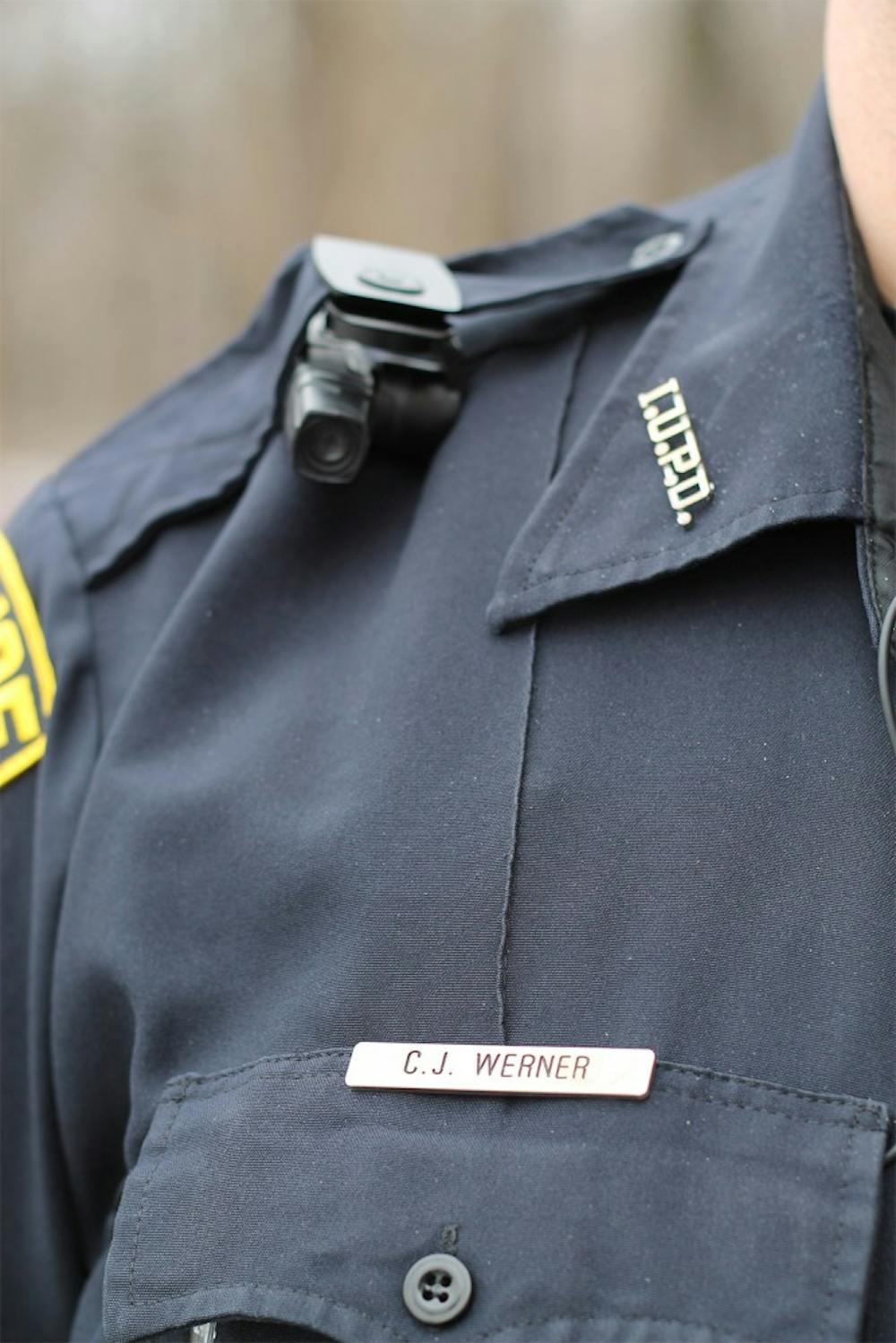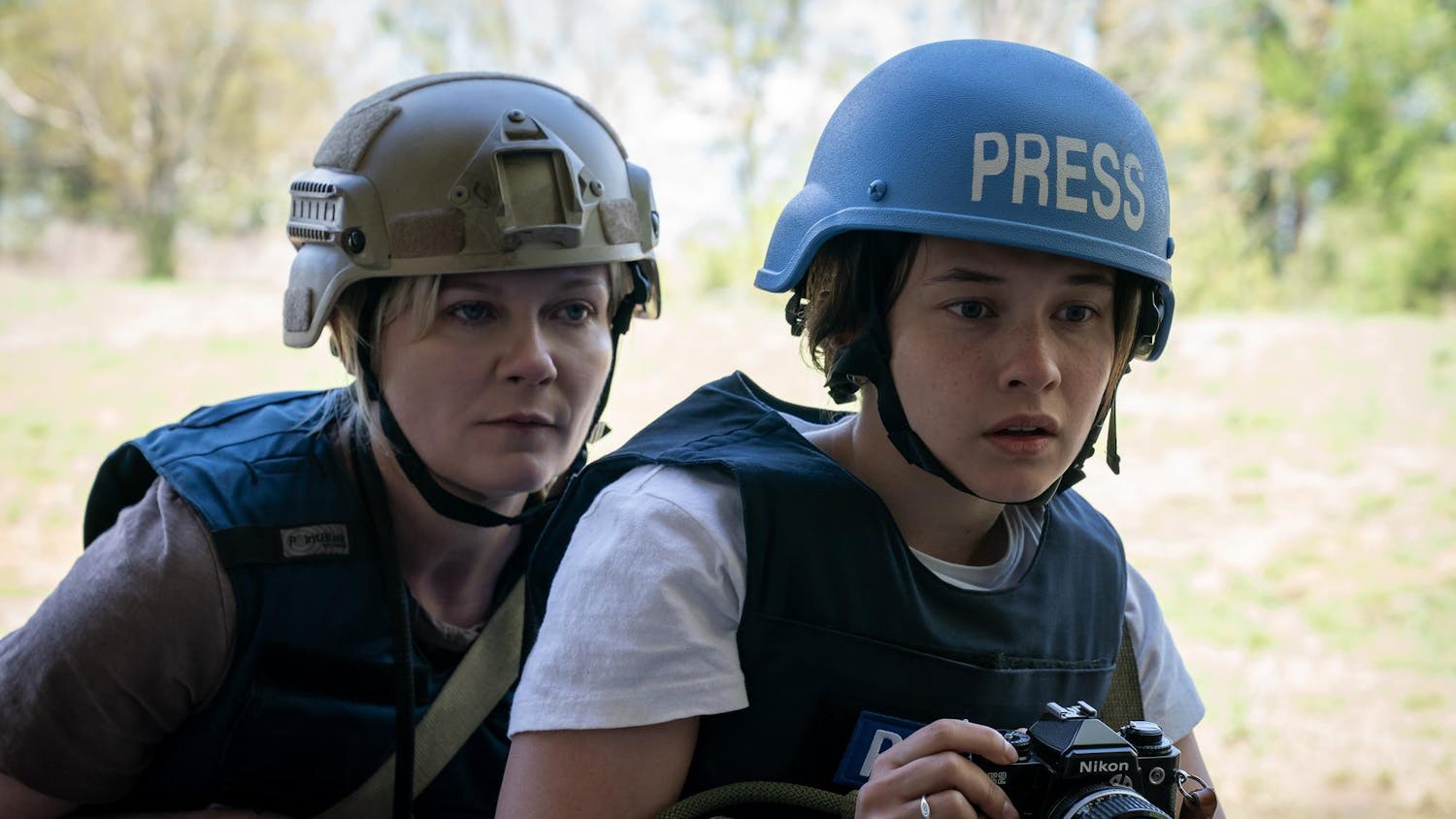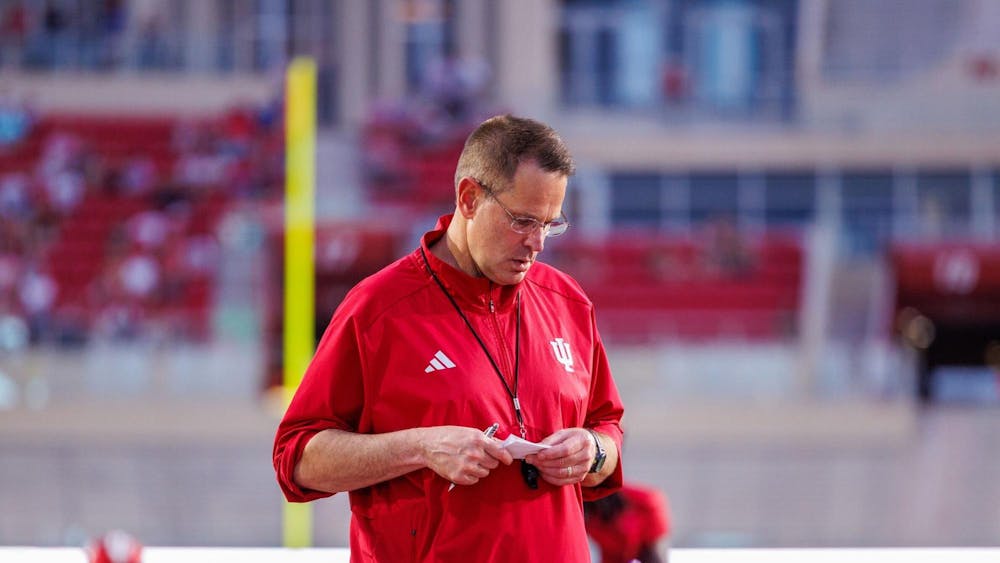Following incidents of highly publicized violence between police officers and the public in Baltimore, Chicago, Cleveland and Ferguson, Missouri, police departments around the country, including the IU Police Department, are evaluating the use of body-worn camera technology for their officers.
For more than a year, a committee of IU representatives has studied the possibility of a body-worn camera program. The committee was commissioned last January by John Applegate, executive vice president for university academic affairs, last January.
They should release their official decision by the end of the month, said Beth Cate, associate professor of governance and law and co-chair of the committee.
“This becomes more than an issue of balancing privacy with responsibility,” Cate said. “The cameras are a tool for enforcing the law, but if there’s a broader issue of distrust between police and the community, then what else needs to happen?”
The committee’s research included a field test of different cameras on officers last year, discussions with other universities about body-worn camera implementation and feedback from student focus groups.
Increased surveillance could give minority student populations less reason to expect negative interactions with officers, senior Jessie Campbell said.
“As black students, we’re more prone to being seen as someone who might act violently,” Campbell said. “So officers sometimes approach blacks more intensely or aggressively. It isn’t something that’s happened to me, but it’s something I’m aware of and sensitive to.”
IUPD officers are willing to adopt body-worn cameras if the committee recommends it, IUPD Capt. Andy Stephenson said.
He said he considers it an extension of their efforts to improve recording technology throughout the department.
Dashboard cameras are installed in more of IUPD’s patrol cars every year, and cars without the cameras are not used for frequent patrolling, Stephenson said.
How and when video is taken and who can have access to the footage is one of the most pressing issues related to a camera policy, Cate said.
“Do officers keep the cameras on all the time or only in response to certain events?” Cate said. “Who can have access to raw footage? These are questions we’re starting to grapple with, and this is where we start looking for community input.”
A bill passed by the Indiana House on Tuesday, now under review by the Indiana Senate, would allow police departments to restrict elements of the general public’s access to video footage from body-worn and dashboard cameras.
“If the police have control of what gets released and if important footage can’t even be used, then I think the cameras are obsolete,” junior Abimael Gonzalez said. “If a policy on officer cameras is used, then it needs to be something that requires the police to release that footage within a certain amount of time.”
Other students feel knowledge of the cameras can make a difference even without access to the footage.
“It’s something that fits nicely into a system of checks and balances,” Campbell said. “It works both ways. A camera can maybe keep people interacting respectfully and keep officers from acting without thinking.”
A college environment lends itself to certain conflicts that aren’t seen in other places, senior Lauren Blackwell said. For that reason, she said she believes body-worn cameras should be used by IUPD.
“You never know what you’re going to run into on a huge campus like this, especially when there are events that other people flood in, like during Little Five,” Blackwell said. “Cameras could make everyone a little more responsible.”
These questions of accountability are more important to the committee’s decision than the logistics of body-worn camera rollout, Cate said. But the cost of outfitting officers with cameras and the cost of storing the video footage from each camera still need to be put under careful consideration.
The committee’s final recommendation should be made within the month, Cate said.
Blackwell said she thinks the use of cameras could be considered a step forward for civil rights.
“I firmly stand for equal treatment for everybody,” Blackwell said. “If that means the use of cameras on our police officers, then so be it, as long as it’s meant to solve a problem.”






